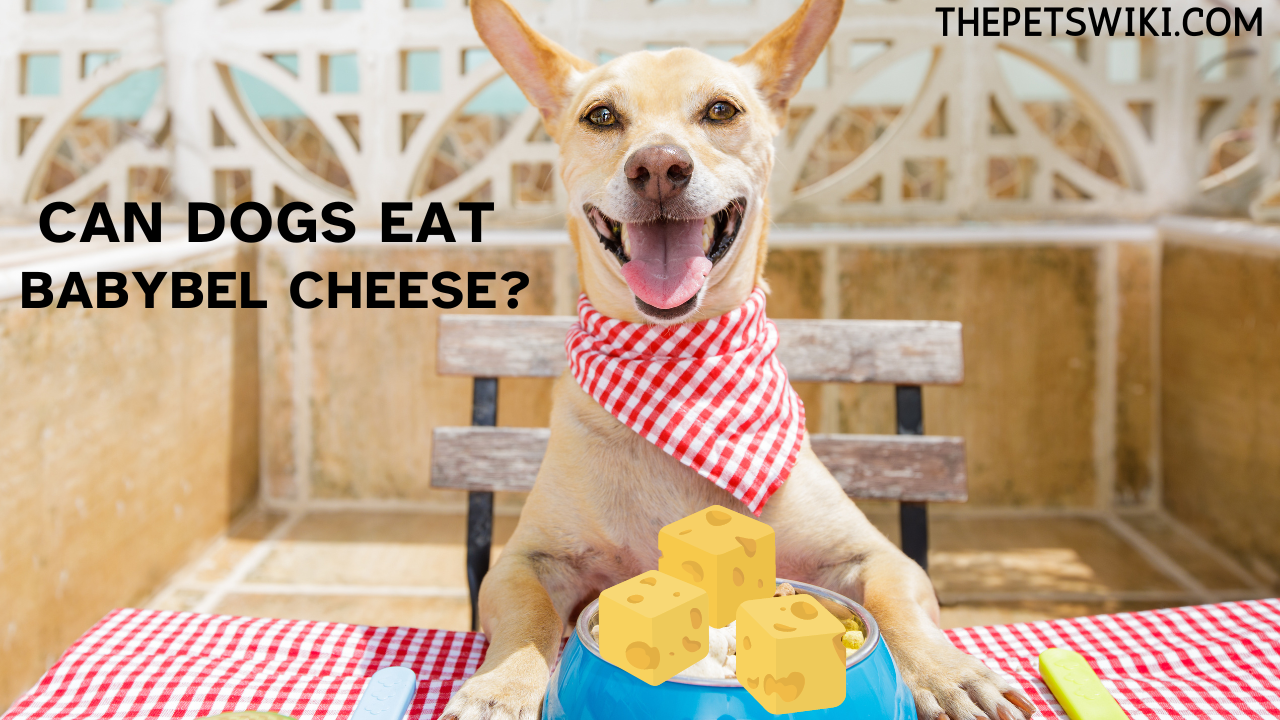As the age-old saying goes, “You are what you eat,” and this holds for our canine companions. But what about indulging them with a nibble of that delightful Babybel cheese? Let us dive into this brief article to get the answer.
Can Dogs Eat Babybel Cheese?
If your dog ate a small amount of Babybel cheese it’s not a big concern for you. A small amount would not create issues like blockage or choking. However, it should not be taken in large amounts.
Nutritional Benefits Of Babybel Cheese For Dogs
- Calcium Boost: Babybel cheese is a rich source of calcium, an essential mineral for dogs. Calcium plays a crucial role in maintaining strong bones and teeth.
- Protein Power: Dogs require protein for various bodily functions, including muscle development and repair. Babybel cheese contains protein, making it a tasty and protein-packed treat.
- Vitamin B12 Content: Babybel cheese contains vitamin B12, an important nutrient for dogs. B12 supports the formation of red blood cells and helps maintain a healthy nervous system.
After reading the above benefits you may find the answer to the question can dogs eat Babybel Cheese? But wait you must also read the below-mentioned risk included in it.
Risks Of Babybel Cheese For Dogs
Despite these potential benefits, it’s crucial to be mindful of the following considerations:
- Lactose Sensitivity: Some dogs may be lactose intolerant, making it difficult for them to digest dairy products. In such cases, feeding Babybel cheese or any dairy product may lead to gastrointestinal discomfort. It’s essential to monitor your dog for signs of lactose intolerance, such as diarrhea or bloating.
- Moderation Is Key: While Babybel Cheese can offer nutritional perks, moderation is vital. Excessive consumption can lead to issues such as obesity or an imbalance in a dog’s diet.
- Salt Content: Babybel cheese, like many cheeses, contains salt. Excessive salt intake can contribute to health problems in dogs, such as increased blood pressure.
Why Do Dogs Love Babybel Cheese?
- Dogs have an extraordinary sense of smell, and the distinctive aroma of Babybel cheese is likely a major draw.
- Dogs are naturally attracted to high-fat foods due to their evolutionary history. In the wild, fat is a dense energy source, and dogs are instinctively drawn to foods that provide a quick energy boost.
- The richness of the cheese can trigger pleasure receptors in a dog’s brain, creating a positive association with the treat.
- Dogs, like humans, appreciate variety in their diet. The soft and chewy texture of Babybel cheese contrasts with the usual kibble or crunchy treats, offering a different sensory experience that dogs find enjoyable.
Is Babybel Cheese Healthy For Dogs?
Babybel cheese is generally a simple and natural product, which can be an advantage when choosing treats for dogs. It lacks added sugars, artificial flavors, and preservatives that might be harmful to dogs. Always take it in moderation and it would be a tasty and relatively healthy treat for dogs.
Can My Dog Eat Babybel Cheese Raw?
Yes, dogs can eat Babybel cheese in its raw form, but there are important considerations and precautions that dog owners should keep in mind to ensure the safety and well-being of their furry companions.
- Small Portions
- Remove the Wax Coating
- Lactose Intolerance
- Monitor for Allergies
- Plain Varieties Only
- Consult with Your Veterinarian
- Consideration for Weight Management
Can My Dog Eat Babybel Wax?
It is not recommended for dogs to eat the wax from Babybel or any other cheese wax. While the wax itself is generally considered non-toxic, it can pose a choking hazard or lead to digestive issues if ingested in large quantities.
What Kind of Cheese Can Dogs Eat?
Dogs can enjoy certain types of cheese in moderation, as it can be a tasty and nutritious treat. Here are some types of cheese that are generally considered safe for dogs:
1. Cheddar Cheese: Cheddar is a firm cheese that dogs can enjoy in small amounts. It’s a good source of protein and calcium.
2. Mozzarella Cheese: Mozzarella is a mild cheese that’s lower in fat. It can be a good option for dogs, and many enjoy its stringy texture.
3. Swiss Cheese: Swiss cheese is another low-lactose option that dogs can consume in moderation. It’s known for its nutty flavor.
4. Cottage Cheese: Cottage cheese is rich in protein and lower in lactose. It can be a good choice for dogs, but opt for plain varieties without added sugars.
5. Cream Cheese: Plain cream cheese in small amounts is generally safe for dogs. It’s advisable to choose options without added flavorings or herbs.
6. Hard Cheeses: Hard cheeses like parmesan or pecorino, when offered in small amounts, can be a flavorful and safe option.
7. Goat Cheese: Some dogs tolerate goat cheese well, and it can be a suitable alternative for those sensitive to cow’s milk.
Suggested Reading: Can Dogs Eat Ricotta Cheese? Is it Risky or Safe?
Final Words
In conclusion, while dogs can enjoy the occasional treat of Babybel cheese in moderation, it’s crucial to be mindful of their dietary needs and potential sensitivities. Babybel cheese can offer some nutritional benefits, such as protein and calcium, but it should be given sparingly and as part of a well-balanced diet.


